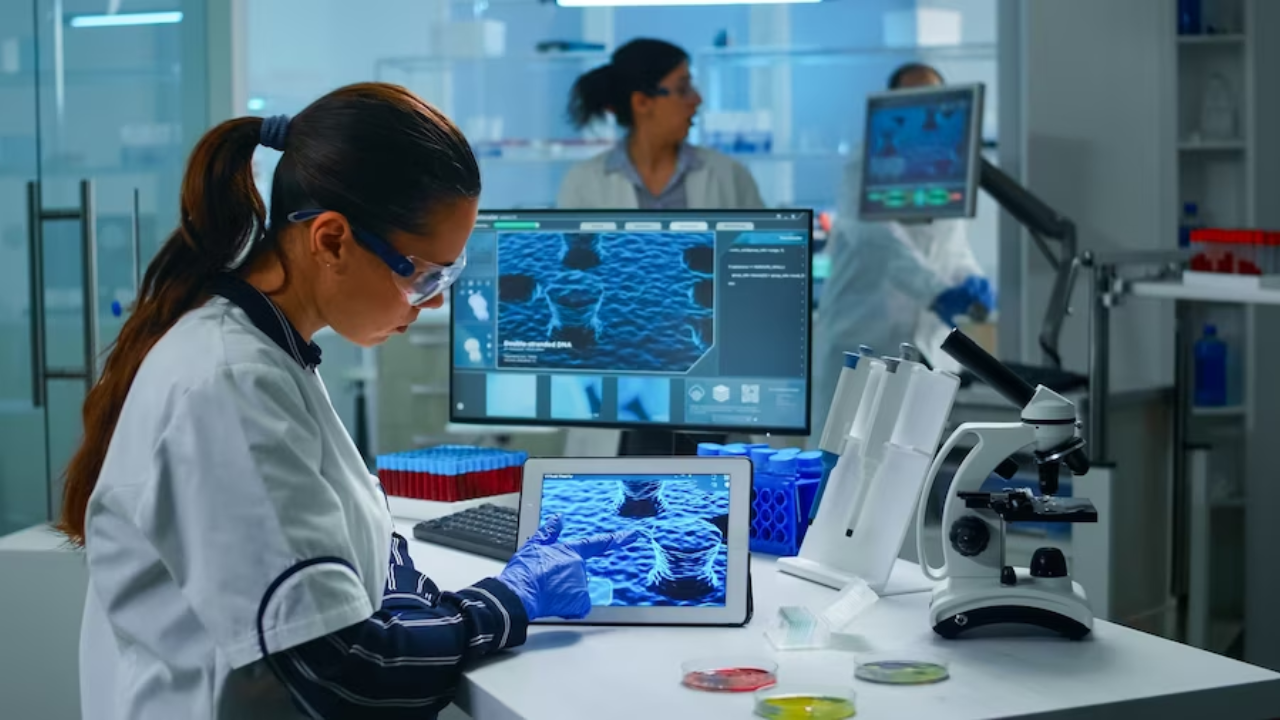Introduction
Bioinformatics is an interdisciplinary field that combines biology, computer science, and statistics to analyze and interpret biological data. With the advancements in technology and the availability of vast amounts of genomic information, bioinformatics has emerged as a crucial discipline in healthcare. This blog explores the growing field of bioinformatics and its applications in transforming healthcare, from personalized medicine to disease research and drug discovery.

1. Genomic Sequencing and Personalized Medicine
The advent of next-generation sequencing technologies has revolutionized the field of genomics, allowing researchers to sequence and analyze entire genomes more efficiently and cost-effectively. Bioinformatics plays a vital role in managing and analyzing the enormous amounts of genomic data generated through these technologies. This data provides insights into an individual’s genetic makeup, allowing for personalized medicine. By understanding genetic variations, bioinformatics helps identify disease susceptibility, tailor treatment plans, predict drug responses, and develop targeted therapies.
2. Disease Research and Biomarker Discovery
Bioinformatics is instrumental in disease research, enabling scientists to identify genetic and molecular markers associated with various diseases. Through the analysis of genomic data, bioinformatics can uncover patterns and genetic variations that contribute to disease development and progression. These findings can lead to the discovery of biomarkers, which are measurable indicators of a biological state. Biomarkers can aid in early disease detection, risk assessment, and monitoring treatment efficacy, enabling proactive and personalized healthcare interventions.
3. Pharmacogenomics and Drug Discovery
Pharmacogenomics, a field that combines pharmacology and genomics, uses genomic information to predict an individual’s response to drugs. Bioinformatics plays a crucial role in analyzing genomic data to identify genetic variants that influence drug metabolism, efficacy, and adverse reactions. By considering a patient’s genetic profile, healthcare providers can optimize medication selection and dosage, minimizing adverse effects and improving treatment outcomes. Bioinformatics also aids in drug discovery by facilitating the identification of drug targets, designing new drug candidates, and predicting their interactions with biological systems.
4. Precision Oncology and Cancer Genomics
Cancer genomics, a subfield of bioinformatics, focuses on studying the genomic alterations associated with cancer. Through the analysis of tumor genomes, bioinformatics helps identify specific genetic mutations and abnormalities that drive cancer development and progression. This knowledge is crucial in precision oncology, where treatment plans are tailored based on the genetic characteristics of a patient’s tumor. Bioinformatics tools assist in identifying targetable mutations, predicting drug responses, and monitoring treatment efficacy in cancer patients, leading to more effective and personalized cancer therapies.
5. Comparative Genomics and Evolutionary Biology
Bioinformatics utilizes comparative genomics to study the similarities and differences in the genomes of different species. By comparing genomes, scientists can gain insights into evolutionary relationships, identify conserved genes, and understand the genetic basis of biological diversity. This information aids in studying the origins of diseases, tracing the evolution of pathogens, and developing strategies for disease control. Comparative genomics also plays a crucial role in understanding the genetic mechanisms underlying human diseases by studying similar diseases in model organisms.
6. Metagenomics and Microbiome Analysis
Metagenomics is the study of genetic material recovered directly from environmental samples, such as the human gut microbiome. Bioinformatics tools are essential in analyzing the vast amounts of data generated from metagenomic sequencing. By characterizing the microbial community and its functional potential, bioinformatics enables researchers to explore the intricate relationship between the microbiome and human health. This knowledge has significant implications in understanding diseases influenced by the microbiome, such as obesity, autoimmune disorders, and mental health conditions.
7. Data Integration and Systems Biology
Bioinformatics plays a critical role in integrating diverse biological datasets to gain a holistic understanding of biological systems. By integrating genomic, proteomic, and metabolomic data, bioinformatics enables researchers to construct comprehensive models of biological processes and pathways. This systems biology approach helps uncover the underlying mechanisms of diseases, identify novel drug targets, and develop more accurate predictive models. Additionally, bioinformatics assists in data visualization and interpretation, facilitating data-driven decision-making in healthcare research and clinical practice.
Conclusion
The field of bioinformatics has become increasingly vital in healthcare, revolutionizing various aspects of medical research, diagnosis, treatment, and drug discovery. Through the analysis of genomic and biological data, bioinformatics enables personalized medicine, disease research, and precision oncology. The growing applications of bioinformatics in healthcare hold the potential to transform patient care, leading to more targeted interventions, improved treatment outcomes, and a better understanding of human health and disease. As technology continues to advance, bioinformatics will play an increasingly crucial role in driving innovations and advancements in healthcare.
